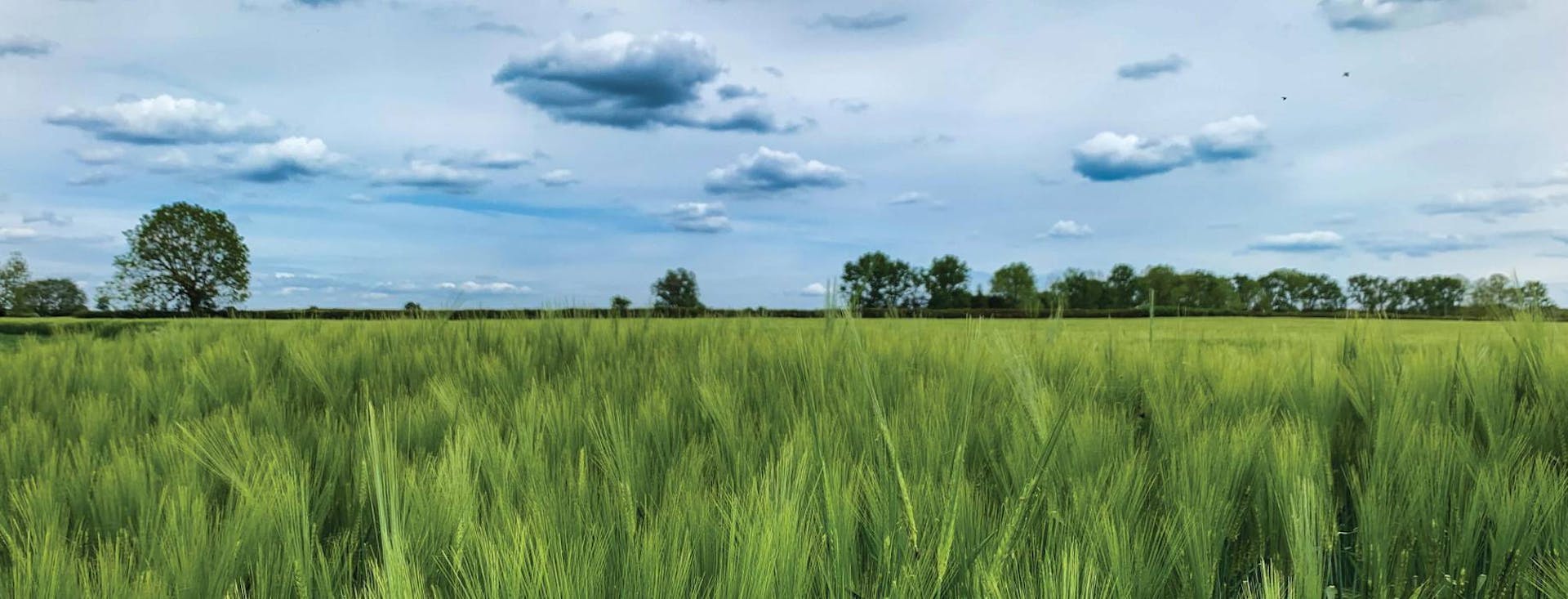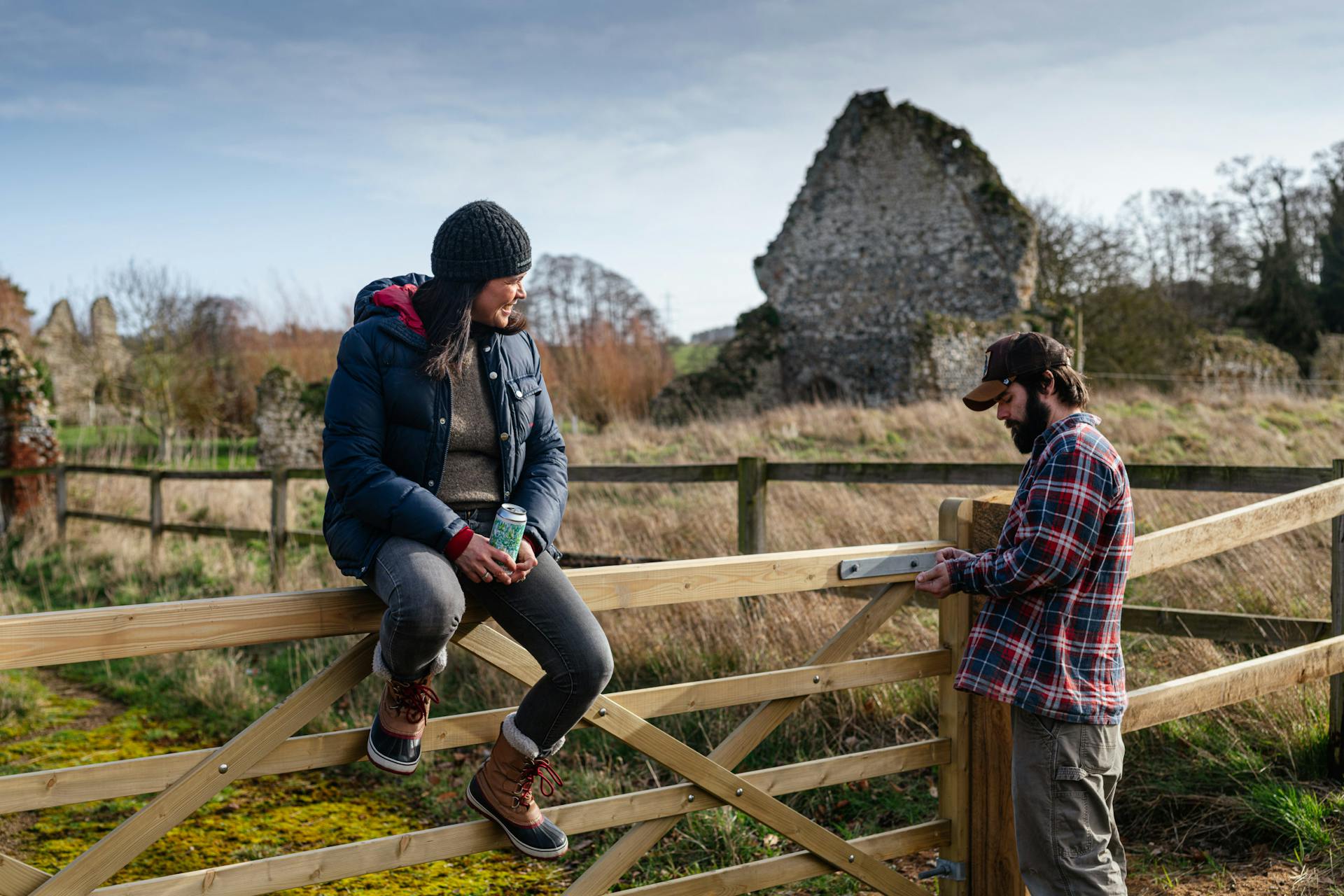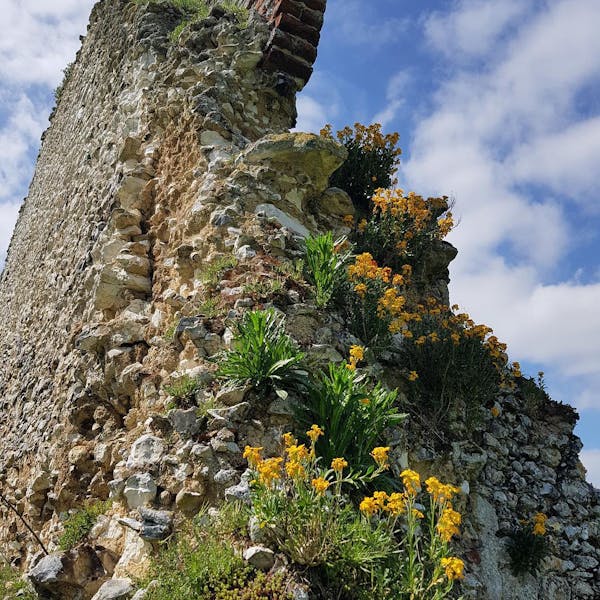This dirty old town | Ferment Magazine
Matthew Curtis – 03 September 2020
Matt Curtis asks how changes brought about by the pandemic could accelerate craft’s rush to the countryside

“The best thing about owning a brewery in the countryside is actually living in sync with the seasons,” Miranda Hudson, the founder of Norfolk’s Duration Brewing, tells me. “I love the re-enchantment of the landscape away from all the hubbub of the city – birdsong, seeing wildlife, and being near the coast. It just feels so expansive.”
The village of Gayton Thorpe is a far cry from Miranda’s former stomping grounds of Brixton, South London. Here in East Anglia steel and mortar is supplanted by old oak forests, coastal salt marshes and farmland as far as the eye can see. She’s a South Londoner through and through, from accent to urban sensibilities, so when a couple of years ago she told me that she and her husband, brewer Derek Bates (who prefers to be referred to exclusively by his surname), were setting up a farmhouse brewery in the middle of the countryside, this came as something of a shock. This was not the plan for a Walthamstow-warehouse or Bermondsey-railway arch I would’ve expected. It was undoubtedly a risk, but a calculated one, with good intentions.
A couple of miles drive (or cycle) from their home in the village is West Acre farm. Here there’s a collective of small, independent startups, surrounded by the ruins of an ancient medieval priory, and backed by the landed-gentry who own this estate. Mostly importantly it’s where the Duration masterplan is taking root: a destination brewery inside a renovated, Grade II listed former stone barn.

“Our remoteness comes with some obvious limitations – poor wifi, limited footfall,” Miranda says. “But having to consider dedicated drivers and family outings when designing open days, tours and what we offer – that excites me, it means we are taking beer somewhere new”
While, admittedly, Duration isn’t that far from large towns such as Kings Lynn, along with the city of Norwich, it’s still the urban centres like London, which they first expected to do most of their trade. However, things are different now. The pandemic has changed everything, and on a Friday, on my most recent visit, as Bates winds down after a day of brewing, he waits for local customers to collect pre-paid cases of beer, while he relaxes with a glass of the brewery’s latest West Coast IPA, Concrete Realities.
“I believe the pandemic has taught people two somewhat converse truths,” Miranda tells me. “On the one hand with good logistics and online shopping we can patronise the businesses we admire directly without physically needing to be there. On the other hand there seems to be a broader understanding and appreciation of hyper-localism.”
Sat among this countryside idyll, suddenly Duration’s master plan makes a lot of sense. As a Londoner of 15 years myself, and having just spent the majority of the past four months in the cramped confines of a second floor, Victorian terraced flat, I too was ready for my slice of something more rural. The convenience of the city, with its bars, restaurants and more besides all but obsolete during lockdown, I started thinking if we would now see a mass exodus to the country. Is the exponential growth of the urban brewery at its inevitable end?
Read the full article here.

